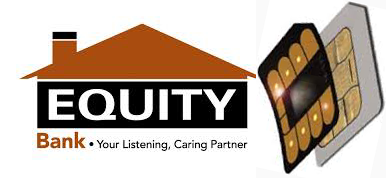Kenya’s telecommunication service provider Safaricom fervently opposed the introduction of the Thin SIM technology being used by the commercial bank Equity Bank. The telecom cited genuine security concerns on the use of the Thin SIM, which is placed on top of the regular SIM card.
However, experts argue that Safaricom was simply acting out, as the Thin SIM will transform the commercial bank into a competitor in many fronts: mobile money services and carrier services like voice, SMA and data. Naturally, as the dominant telecom service providers, this move was not expected to be in the best interest of Safaricom.
Nonetheless, Equity Bank got the green light to deploy its Thin SIM technology and by December 2015, the bank had already issued more than 1.7 million SIM cards to its customers.
During the release of Equity Bank’s full year financial report for the year 2015, the Equity Group Holdings CEO Dr. James Mwangi revealed that Equitel customers had made more than Ksh.115 billion in 2015 compared to 2014’s Ksh.4.7 billion.
Much of this increase in transactions was attributed to the mobile banking brought on by the Equitel SIM Cads. It has also emerged that the bank cut down on its cost of operation quite significantly.
Dr. Mwangi said, “Mobile and online banking have become key platforms for our customers hence this will remain a priority as we switch into digital banking.
Our customers are elated with the free money transfer offering and other features. This has seen them recommend Equitel to more people hence helping us reduce our marketing cost.”
For the first time in 25 years, Equity Bank has seen a reduction in staff cost. Something Dr. Mwangi attributes to the successful deployment of Equitel service.
“Few customers are visiting the branches, and this might lead us into retiring the old brick and mortar structures as banking become part of our lifestyle.”
For the year 2015, 78% of that total loans issued by the bank were through the mobile platform, and a total of 8.5 billion loads were disbursed through Equitel. The financial report also shows that 72% of the total loans went to SMEs.
“We receive about 80,000 applications for loans on a daily basis out of which only 1,000 comes through the branches. The average monthly loan is Ksh.7,000 while customers applying for one-year loans take up to Ksh.120,000,” said Dr. Mwangi.



